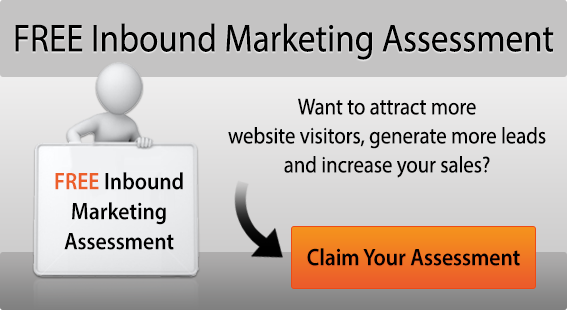Why Inbound Marketing (SEO & Social Media) Is Crucial For Your Small Business

Inbound marketing is an umbrella term for a wide range of digital sales and content strategies designed to encourage inbound sales enquiries. It is traditionally contrasted with outbound marketing, in which a business actively contacts a customer with a (usually unsolicited) sales proposition.
Inbound marketing is widely used by large businesses to effectively dominate niche online marketplaces – the tech giants Amazon, Google and Facebook are good examples of this, as are many household consumer names – while many smaller businesses still rely on traditional outbound and networking techniques to gain most of their sales.
This is a misconception.
In this article, we explain why inbound marketing, especially its social media and search engine optimisation (SEO) elements, is as crucial for small businesses as it is for their larger competitors, and the benefits you could see by adopting inbound marketing for your SME sales strategy.
Benefits of inbound marketing for SMEs
1) Nonintrusive
Social media, streaming services, the search engines, and traditional TV and radio are full of regular and unsolicited adverts by brands large and small. This ‘interruption marketing’ literally interrupts someone’s activity to get their attention, and is quite often viewed as pushy and intrusive by customers. This approach includes cold sales calls and emails, as well as many types of social media and YouTube adverts, video adverts and paid app reviews.
For small businesses, who can never hope to compete with the large brands in shout advertising, it’s more beneficial to adopt an inbound marketing approach. Inbound marketing is intrinsically nonintrusive, providing beneficial content that prospects can opt into without interrupting what they are doing. Respect is earned, not demanded, creating better rapport with customers and increasing the likelihood of sales.
2) Cost-effective
There are costs involved with inbound marketing, but in comparison with some outbound strategies, inbound marketing is extremely cost-effective, making it a crucial marketing strategy for small businesses. Some inbound marketing tactics, such as blog writing and social media engagement, can be implemented very cheaply, and the result is evergreen content that remains on the Internet indefinitely – a successful blog post or e-book can often generate new leads for years with no recurring costs. Even the paid forms of inbound marketing, such as Google PPC adverts, can be tailored to suit an affordable budget and, if managed effectively, can generate an excellent ROI.
3) Better targeting
Small businesses typically don’t have huge sums to spend on advertising and marketing, so can’t afford to be indiscriminate with their marketing budget. Inbound marketing offers an excellent advantage here by letting businesses target prospects at specific stages of their buyer journey to maximise the chance of conversions. The main stages to consider are: awareness – in which a prospect is doing general research to better understand a problem in their work; consideration – in which the prospect is actively comparing different types of solution to a problem; and decision, in which the prospect is aware of the best solution and is comparing service providers before making a purchase.
The Buying Journey:
Becoming aware of a need/problem/solution
Researching and
understanding
solution further
Selecting the specific product/service/vendor
*Half of B2B buyers make up their minds before even talking to a sales rep
(CSO Insights)
Inbound marketing content addresses each of these stages in progression, nurturing leads to the point where they are happy to opt into your services.
4) Builds brand awareness
The average small business is not a household name and is not even particularly well-known within their niche. Inbound marketing provides an avenue to change this without investing large sums on event sponsorship, trade show stands and other high-profile tactics. Through carefully curated blog articles, gated downloadable content, videos, infographics, and social media posts, you can build your reputation as an authority in your sector, providing helpful information and creating trust and rapport between your business and your target audience.
5) Improves visibility
One of the great things about the Internet is that it creates, at least in theory, a level playing field between small businesses and the largest corporate brands. By targeting the right keywords – which are simply the search terms your customers use to ask questions about products and services – on Google, you can raise the profile of your business website and attract more web visitors from a qualified audience. The real magic of search engine optimisation (SEO) for small businesses is how it allows you to increase your prominence among a very tightly defined or local audience of potential customers. Some keywords have thousands of hits whereas some have very few. By targeting niche keywords used by your core buyer types you can quite quickly increase your brand authority and relevance among an interested audience of potential buyers.
Next steps - start benefiting from inbound marketing today
If you’re interested in exploring the benefits of inbound marketing for your business, contact one of our marketing professionals today. We can discuss your objectives and what you want to achieve from marketing, and the best tactics to exceed these ambitions within your budget. Call JDR on 01332 343281 to find out more.
Image Source: Pixabay



